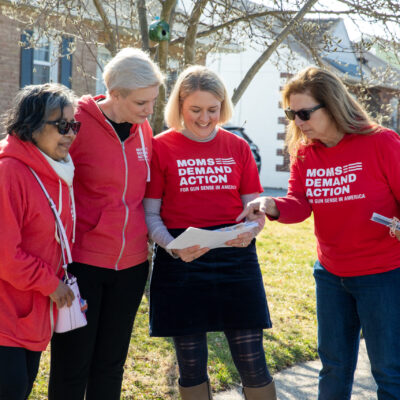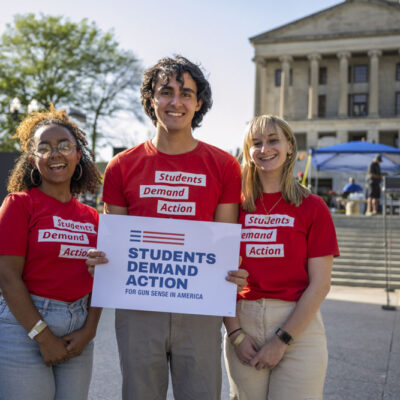The Two Year Mark of the Shootings in El Paso and Dayton is Approaching: Here is What You Need to Know.
7.29.2021
On Tuesday and Wednesday, the two-year marks of the El Paso and Dayton mass shootings, during which 32 people were killed and 40 more were wounded in one weekend, will be commemorated across the country. Both shootings rocked their communities, states, and the nation.
The El Paso shooter was driven by racism against Latinx communities, and rhetoric found in his white supremacist manifesto echoed that of former President Donald Trump. The shooter in Dayton reportedly “seethed at female classmates and threatened them with violence,” underlining the tragic fact that many mass shootings are rooted in domestic violence or hatred towards women.
Senate Republicans pledged to act in the aftermath of these shootings, but broke that promise after NRA CEO Wayne LaPierre walked into the White House and told Donald Trump to “stop the games” on gun safety. Since President Joe Biden took office, President Biden has used the power of the presidency to tackle the gun violence crisis, including by unlocking billions for community violence intervention programs, cracking down on ghost guns, and launching a multipronged effort to address rising city gun violence by combating gun trafficking and holding rogue gun dealers accountable. However, Congress — in particular, the U.S. Senate — has thus far failed to take significant action on gun safety since the El Paso and Dayton shootings.
And in the states, Ohio and Texas have each rolled back important protections and gun safety laws: enacting “Stand Your Ground” and permitless carry, respectively. Currently, several House-passed bills await action from the Senate, including background check legislation and legislation to address the “Charleston Loophole,” which currently enables gun sales to proceed after three business days even if a background check has not been completed.
Over the last several years, there have been many incidents of hate mirroring President Trump’s rhetoric: earlier this year, hundreds staged an insurrection at the U.S. Capitol; in 2019, the El Paso shooter’s white supremacist manifesto echoed Trump’s anti-Latino racism; in 2018, a Trump supporter sent bombs to several Trump critics including Hillary Clinton and Barack Obama; in 2019, a Milwaukee man allegedly threw acid on a Latino man after asking him “Why did you come here and invade my country?” and telling him to “go back;” and in early 2020, during Trump’s impeachment trial, another Trump supporter allegedly threatened to kill Rep. Adam Schiff (D-CA). On top of that, the number of hate groups designated by the Southern Poverty Law Center are historically high.
After the shootings in El Paso and Dayton, activists across the country came together to act––spurring a massive surge in momentum for the gun safety movement. In the two years since, the number of Moms Demand Action and Students Demand Action volunteers across the country has grown exponentially; several corporations spoke out about gun violence for the first time; both chambers of Congress flipped to a gun sense majority; and President Biden and Vice President Kamala Harris won the presidency, becoming the strongest gun safety administration we’ve seen.
Everytown Support Fund released reports in October 2020 and January 2021 on the gun lobby’s role enabling armed far-right extremism, which detailed the gun lobby’s decades-long amplification of radicalizing rhetoric and advocacy for laws that enable right-wing extremists in the United States to arm themselves. The reports also examined the toxic mix of conspiracy theories, far-right extremism, and accessibility of guns in America and the connection between extremism, lax gun laws, and the Capitol insurrection.




